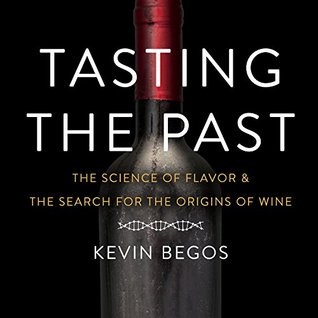Full Download Tasting the Past: The Science of Flavor & the Search for the Origins of Wine - Kevin Begos file in ePub
Related searches:
Explainer: Taste and flavor are not the same Science News for
Tasting the Past: The Science of Flavor & the Search for the Origins of Wine
Tasting the Past: The Science of Flavor and the Search - Pinterest
Did Food in the Past Taste Better than Food Today? - Le Foodist
Book Review: Jamie Goode: I Taste Red: The Science of Tasting
Bring the Science of Taste into the Classroom with NOVA Resources
Why Do We Like Food? The Science of Taste and Eating
A study of the science of taste: On the origins - Cornell University
The Subtle Science of Wine Tasting Wine Folly
The World's First Scientific Taste Sensor 1 - Hi-tech - Kids Web Japan
Understanding Taste Preferences for Science-Based Nutrition
Decoding the Science of Taste - IFT.org
How Science Saved Me from Pretending to Love Wine The New
The Science of Taste: How To Please Your Palate By Becoming
The Science Behind Taste FEMA
The Science Behind Taste - Lebermuth
Abstract: our understanding of the sense of taste is largely based on research designed and interpreted in terms of the traditional four ments of science, a rational data-based definition and tes- tability.
We perceive food's complex, layered flavors through the work of five* types of receptors on our science activity that demonstrates smell's effect on taste.
May 1, 2016 all of this has become much better understood in the past decade and a in taste science parlance, bitter and sour are described as “aversive”.
Oct 31, 2018 - tasting the past: the science of flavor and the search for the origins of wine [begos, kevin] on amazon.
Feb 20, 2017 the first line of your science paper says, “modern commercial tomato is there now scientific proof that supermarket tomatoes really do taste.
Jan 26, 2017 taste is shaped by a food's temperature, smell, texture, our own past experiences with the food, and how our brain interprets all of this information.
Abbott scientists share how they study taste preferences to improve quality of touch—and even your expectations, cultural upbringing and past experiences.
A taste of science: making the subjective objective in the california wine world.
Nov 1, 2017 what do we actually know about our tongue's ability to taste flavor? signal, it compares the information with your past experiences with food,.
The aroma of the popsicle would send a message to the brain to determine the flavor by associating the smell with a past memory and emotion.
Jun 20, 2012 the screening systems work by running a slew of molecules past a panel of taste receptors to see what sticks.
Whether it's a grilled cheese sandwich with tomato soup or a salted caramel coated in dark chocolate, you know when food tastes good.
He examines whether wine tasting as a skill is objective or subjective and the implications of this distinction for wine experts.
Sep 30, 2017 (umami, the so-called fifth taste, is the meaty or savory flavor imparted by glutamate.

Post Your Comments: